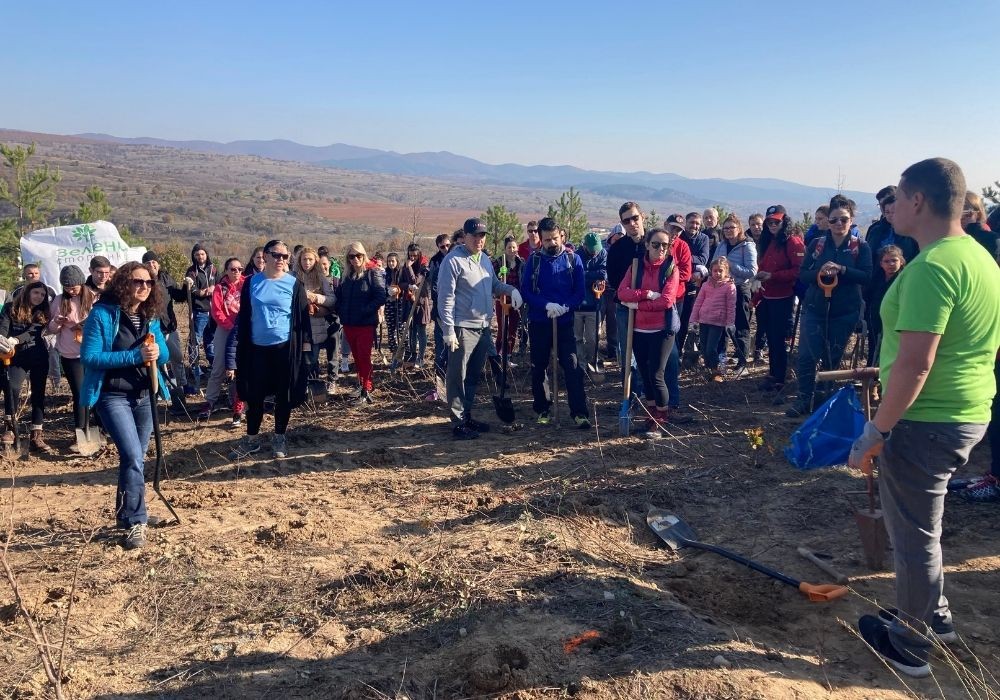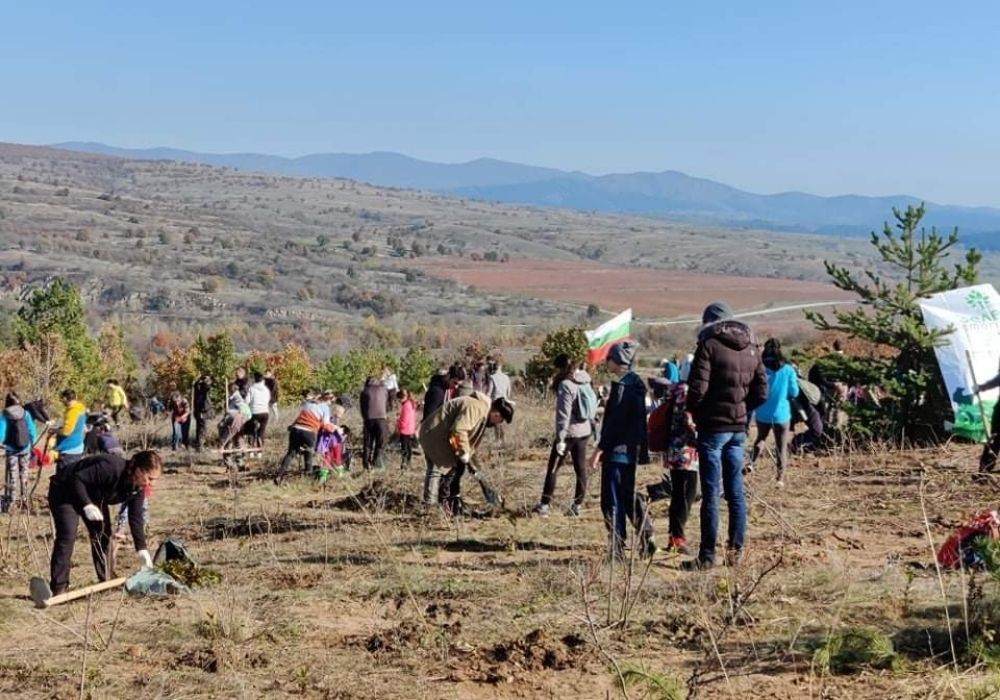Raya is 36 years old. She graduated from the Classical High School in Sofia, but continued her education in the Netherlands and Great Britain. She has lived in many places in Europe and currently works in the International Labor Organization in Geneva, where she heads the design department. She has two master's degrees and is currently on her path to a third university degree related to climate change.
She does not own a home and has no personal car but she has a forest! Like many young people, Raya is deeply concerned about the environment. She is sure that everyone can be useful in preserving nature through small steps. "I felt I had to do something," Raya Ubenova says. That is how the idea to invest all her personal savings in buying a large plot of land in Bulgaria and planting it with trees emerged.

This is the most useful and inexpensive technology for carbon dioxide sequestration. There are many other benefits, too. Forests stop erosion, provide habitat to various animals and improve the quality of soil, Raya Ubenova has told us.
In April, she returned to her homeland to look for suitable agricultural land, close to a forest. She found it near the village of Tserovo in Pazardzhik. "The area of the forest is a total of 1.95 hectares. On the spot we came across a few pines, wild juniper and mostly bushy vegetation,” Raya says.

The young conservationist started her activities in afforestation carefully, after long studies and consultations.
"Since I have no special knowledge in this field, I contacted Assoc. Prof. Dr. Nasko Iliev, who is an expert. He prepared a technological plan with the appropriate types of afforestation. He recommended that the main species should be different types of oak trees. The accompanying species that provide diversification of the forest are linden, maple, wild juniper and others.”
Raya Ubenova’s forest is already a fact. On November 13, more than 300 volunteers from across the country joined the afforestation initiative. In the next 2-3 years, volunteers will regularly take care of the young trees and remove weeds.

What was the reaction of Raya’s relatives when she told them that she was preparing to part with all her savings in the name of humanity and nature?
"I was absolutely sure I would it," Raya says. “I knew this thing was right and necessary, so I was immune to their reactions. My mother was very worried because I have no home and buying this land without living there or making profits of it was incomprehensible. But my stepfather embraced the idea completely and helped me a lot.”

According to the young woman, the main priority of most of Bulgarians is to provide a living for themselves and their families and overcome the everyday obstacles and that is why they are rarely interested in global issues, such as nature conservation. However, more and more Bulgarians are being actively involved in environmental initiatives, which is encouraging, Raya Ubenova says in conclusion.
Photos: courtesy of Raya Ubenova
English: Alexander Markov
The village of Oryahovitsa, Stara Zagora region, today celebrates its symbol - the walnut tree. There will be a Festival of the Walnut with a varied programme featuring the Kazanlahsko Nastroenie (Kazanlak Cheer) Orchestra, the soloist of..
Disputes in Croatia over sending military personnel to NATO mission in support of Ukraine NATO Acting Deputy Secretary General Boris Ruge visited Croatia to explain to local MPs about the Alliance's mission in support..
Konyovets village near Shumen is marking 160 years since the oldest stud farm in Bulgaria was set up. Celebrations are being organized on the farm on 1 November when officials from the Ministry of Agriculture and Food and of the State Fund..
Nuredin Nuredinaj comes from the historical-geographical region of Gòra in Northeastern Albania, where 90% of the inhabitants identify themselves as..

+359 2 9336 661
